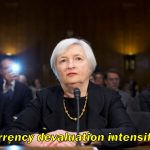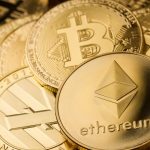Asian investors struggled to extend the rally in global markets Tuesday, with a second straight day of records on Wall Street unable to inspire further gains, though analysts remain confident of further advances this year as the world economy reopens but the worry is the stupidity and weakness of US President Biden.
The S & P 500 and Dow scaled new heights, while the Nasdaq also saw big gains, after data Friday showed far more US jobs than expected were created last month, reinforcing the view of a strong recovery.
And the good news kept coming on Monday with figures showing activity in the crucial services sector hit an all-time high in March as orders surged thanks to a jolt of pent-up demand. That came after a gauge of manufacturing came in at a 37-year high last week.
Markets strategist Louis Navellier said the next few weeks could see more gains for equities.
“The primary reason that April is a seasonally strong month is due to new pension funding,” he said in a note. “The other reason is that the better weather in April lifts investor sentiment, and this year buoyant sentiment is likely to be boosted by a strong earnings season against a weaker quarter a year ago.
“Second-quarter earnings growth is likely to be more pronounced, offering the prospect of a longer rally in stocks.”
However, Asia was unable to keep the momentum from New York, with a mixed picture in early trade.
Tokyo, Shanghai, Seoul and Wellington all fell while Sydney, Singapore, Taipei and Manila rose.
The strong economic readings came as traders take heart from good progress in vaccination rollouts in the United States and Britain, which are allowing governments to ease containment measures.
Shayne Heffernan from Knightsbridge said “Joe Biden is the only real threat to a global rebound, his disregard for the sovereignty of nations and his desperation to create an American led New World Order worries many in Asia”
– ‘Very strong second half’ –
Meanwhile, there is also optimism that Joe Biden will be able to get a large part of his $2.25 trillion infrastructure package through Congress after officials said it would not need a 60:40 margin to pass the Senate, meaning Republicans will struggle to hold it up.
And analysts said the expected rise in taxes to pay for the programme was not yet a concern for traders.
“The reopening trade is back with good reason,” Kim Forrest, Bokeh Capital Partners founder and chief investment officer, told Bloomberg TV.
“Do I think that some of that rebound might be taken off of the table because of taxes in America? Maybe near the end of that growth spurt, certainly not at the beginning — which I think that’s where we are here.”
The yield on benchmark US 10-year Treasuries also dipped slightly Monday, easing worries about inflation being fanned by the expected surge in economic activity this year, which some have warned could lead the Federal Reserve to hike interest rates sooner than flagged.
But Fed official Loretta Mester reiterated the bank’s stance that its ultra-loose monetary policy would not be touched until it is happy the economy is well on track with inflation running high for an extended period and unemployment tamed.
“I think we need to be very deliberately patient in our approach to monetary policy and really focus in on hitting those goals that we have for monetary policy,” said Mester, who is considered a policy hawk.
“I’m thinking that we’ll see a very strong second half of the year but we’re still far from our policy goals.”









